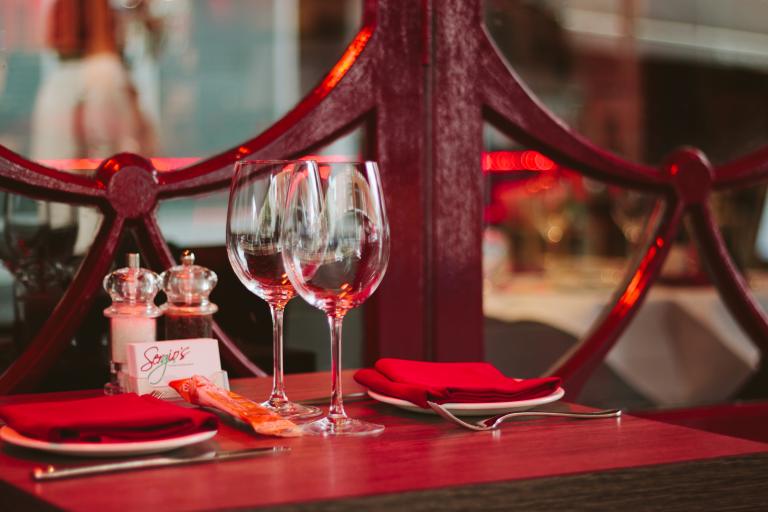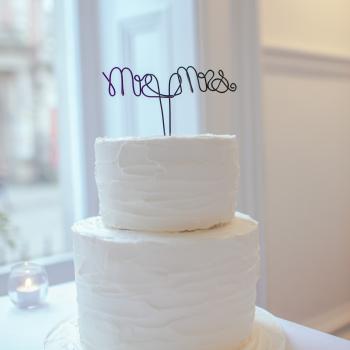
“Where my rights end and another person’s rights begin is a complicated matter.”
That’s what a friend said to me last week during a discussion we had about Sarah Huckabee Sanders, and The Red Hen ordeal. As you know, the Press Secretary was thrown out of the restaurant for being employed by President Trump. Sanders promptly and politely left, and was then harassed at the restaurant down the street, until her liberal brother-in-law stepped outside the restaurant and asked the hecklers to leave, as they were not helping their liberal cause.
Since the reporting ends there, I’ll assume the story ends there as well. But the situation does beg the question: Where do my rights end and your rights begin? That’s difficult to answer. I do wonder how liberals who think it dandy to take a baker and florist all the way to the Supreme Court for not serving them due to religious convictions can boot Sarah Sanders from a restaurant for her political affiliation and identity of her boss, with a clear conscience.
I’m personally fine with the restaurant owner choosing to refuse service to Sarah Sanders. I believe in the right to refuse service to anyone, and although I think the reason for throwing Sarah Sanders out of The Red Hen was rude and hypocritical, it’s still the restaurant owner’s prerogative to say a customer will not be served in her restaurant.
Say I, a conservative, owned The Red Hen, and a homosexual couple came and sat next to a family, which included their five year old grandson, and the homosexual couple started making out. (I live very near a famous liberal hippy town, so this is not far fetched for me.) What would my reaction be? I’d ask the couple to either stop making out, or leave the restaurant. I wouldn’t refuse them service simply because they were homosexual, but the moment they start being insensitive and forcing their corrupt lifestyle on others, it’s time they leave. My property. My right to tell them to head out.
So, if a conservative cake baker and a florist are not allowed to refuse service to a homosexual because of their religious convictions, why is a liberal restaurant owner allowed to do the same, in the name of her “morals”? Where do the baker’s rights begin and end, and where do the restaurant owner’s rights begin and end? The answers are written into our nation’s laws, and the Supreme Court upheld those laws this last week in the case of the baker and florist. Clearly, it is acceptable to refuse service to someone based on your religious convictions. That right is not what I’m questioning. What I’m questioning is why liberals find it acceptable to refuse service to their customers, but conservative Christians, in their minds, do not have the same right?
This battle is spiritual, in addition to lawful. What liberals dislike most is that America was founded on Christian principles. As such, traditional marriage has been historically upheld. Christian principles worked out in practical ways looks like feeding and housing the poor, but not in a way that negates the poor’s responsibility to eventually contribute to society. We could elaborate on other ways Christian principles work themselves out into political policy at times, but my point is that a country built on Christian principles becomes a problem when the vast majority of the country is either no longer Christian, or no longer values Christian principles. I don’t know the numbers on how many Americans are Christians. I just know what I see (a country in rebellion toward it’s own laws), and I know what Jesus said … that wide is the road and broad is the way that leads to destruction, and there are many who go in by it. Because narrow is the gate and difficult is the way which leads to life, and there are few who find it. (Matt. 7:13-14)
Those of us who are Christian are fighting for Christian principles and laws to be upheld. Those of us who are not Christian are fighting for the destruction of those laws, and whether wittingly or unwittingly, the destruction of our country. If you look back on American history compared to the history of other parts of the world, it’s difficult to deny the success of America, of her foundation and traditions. Therefore the question for conservatives like myself becomes: why change?
The answer, according to some, is that America doesn’t deserve to be sovereign, successful, or “special.” To which I would reply:
Since when do we desire what we deserve?
My next breath is a gift. Everything I encounter in life that is good is a gift. My food. My clothing. My family. My backyard trees. My ability to see those trees. Yes, we work hard in my family to provide for ourselves, but the strength to do so is also a gift. I don’t want what I deserve. Because what I deserve is eternal damnation, and separation from God and all the grace (common and particular to me as His child) and gifts He has bestowed on me and on us, as a country. If that makes me a pig-headed nationalist, then gosh, throw me out of your restaurant. I will respond by leaving and sincerely hoping, in spite of our disagreements, that your restaurant succeeds. But I will also leave refusing to desire what I deserve. It is not irresponsible or wicked to want my country and therefore my neighbors and family to live void of vulnerability to wick world leaders and other suffering.
The point I’m getting at by putting myself out here as a target of cyber vehemence is that if we’re going to avoid another Civil War, we should start contemplating how we’re going to live together in harmony – in spite of our disagreements. We have laws, in part, because convictions run deep. My convictions about not allowing homosexual couples to make out in my fictional restaurant are just as strong as the gay couple’s convictions about their “right” to have a cake delivered to their reception. Or The Red Hen owner’s convictions about not letting a Trump employee eat at her table.
So who wins?
Well frankly, many times, Christians do, simply because as I said before … America was built on Christian principles and her laws reflect those principles. The Founding Fathers wanted people to govern themselves so that the government could stay out of their lives as much as possible. They believed in small government, big freedom. But – if we the people fail to govern ourselves, then the government must govern us. Do we want to continue behaving like hangry toddlers, never considering that such folly has and will again lead to bloodshed? Or do we want to, as much as is possible, live peaceably among all men?
Some things are worth fighting for. Religious freedom is one, as in the baker’s case. The right to refuse service is another. The reason for exercising the right to refuse service? My liberal-minded friends could work on that a little bit.
**photo by Alex Holyoake on Unsplash












